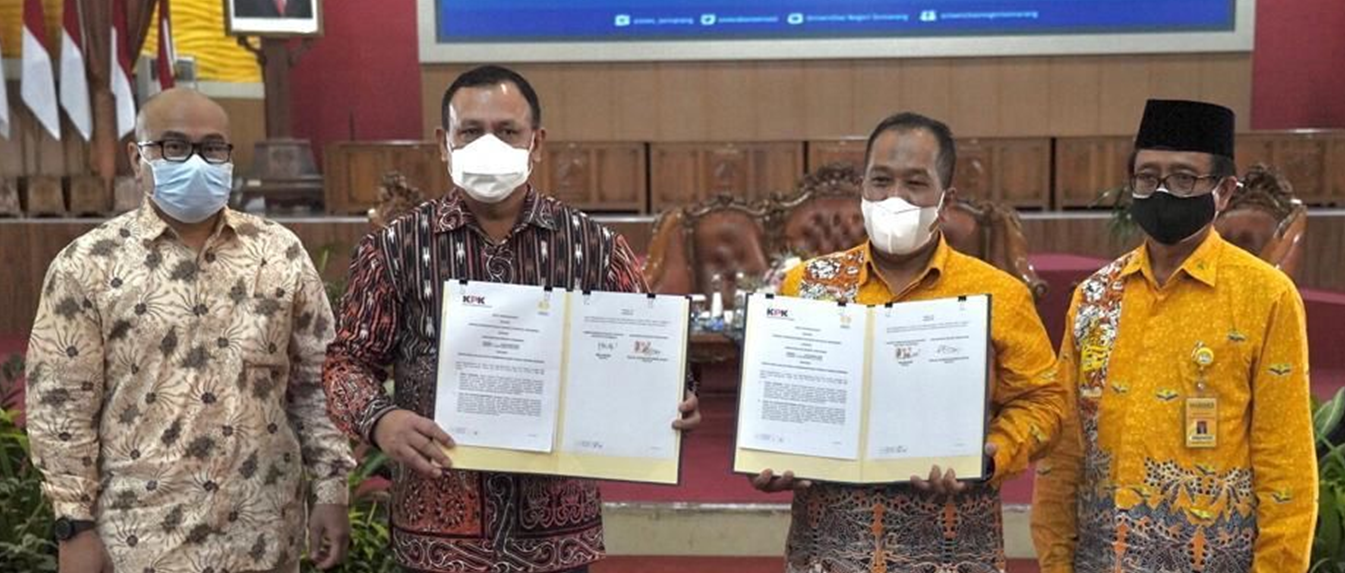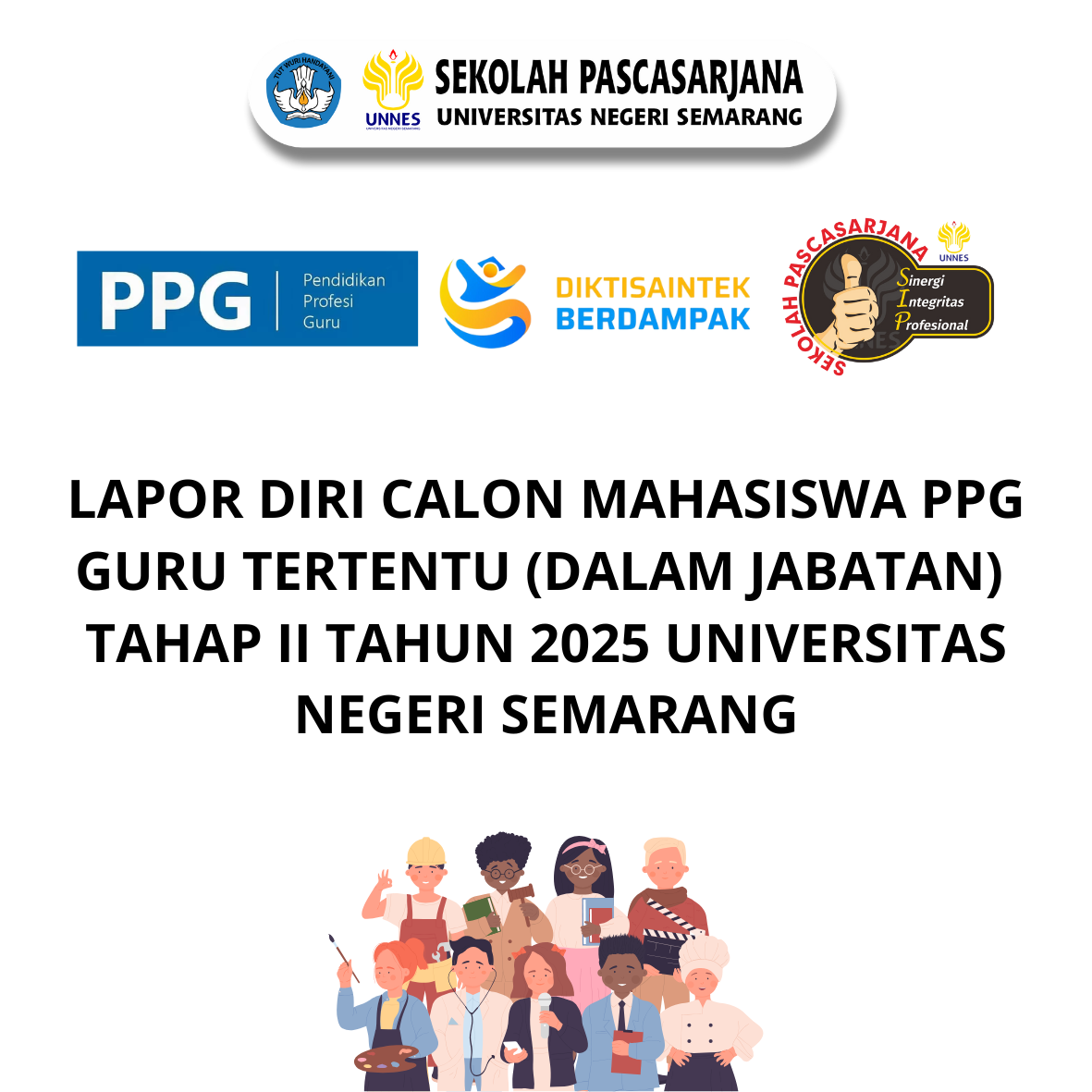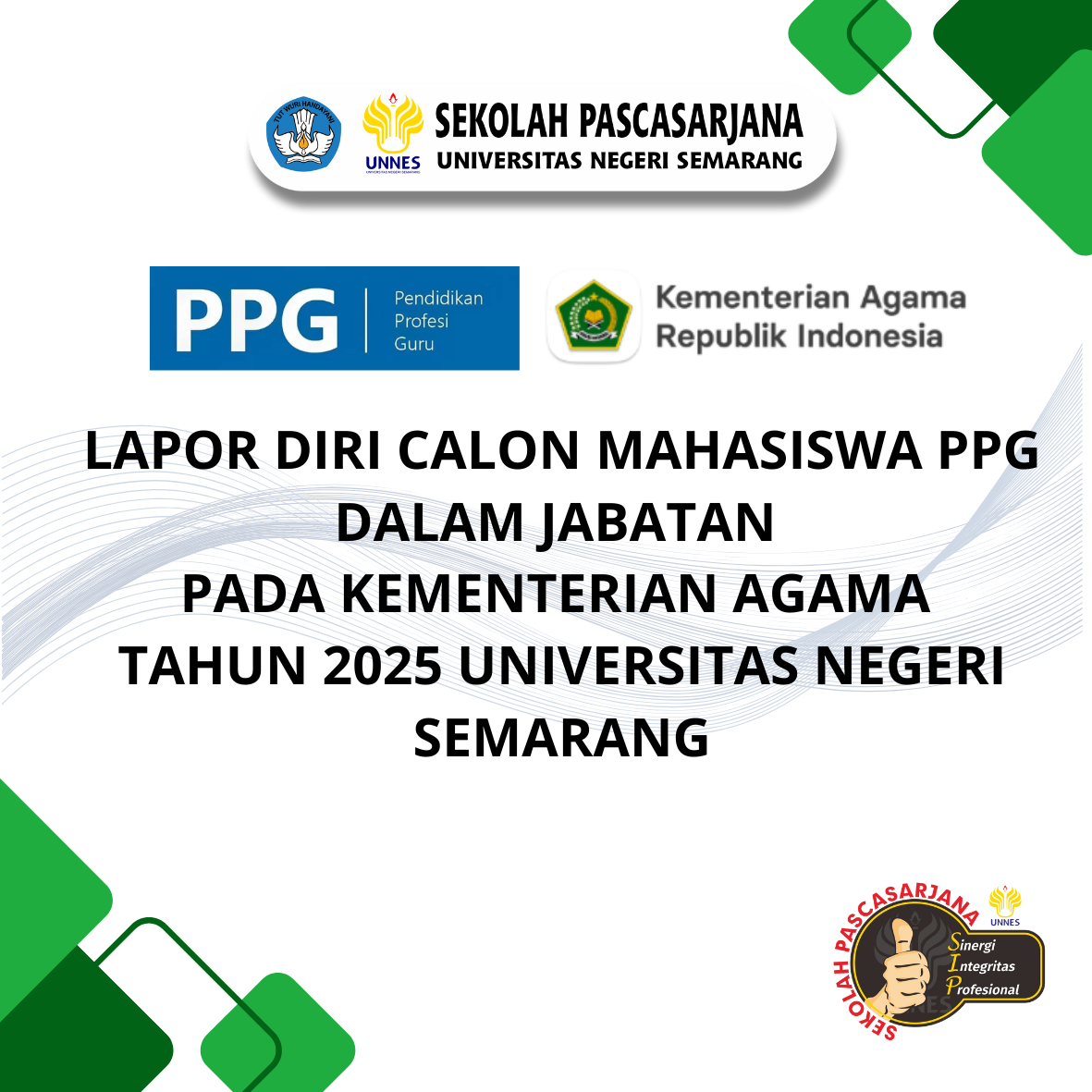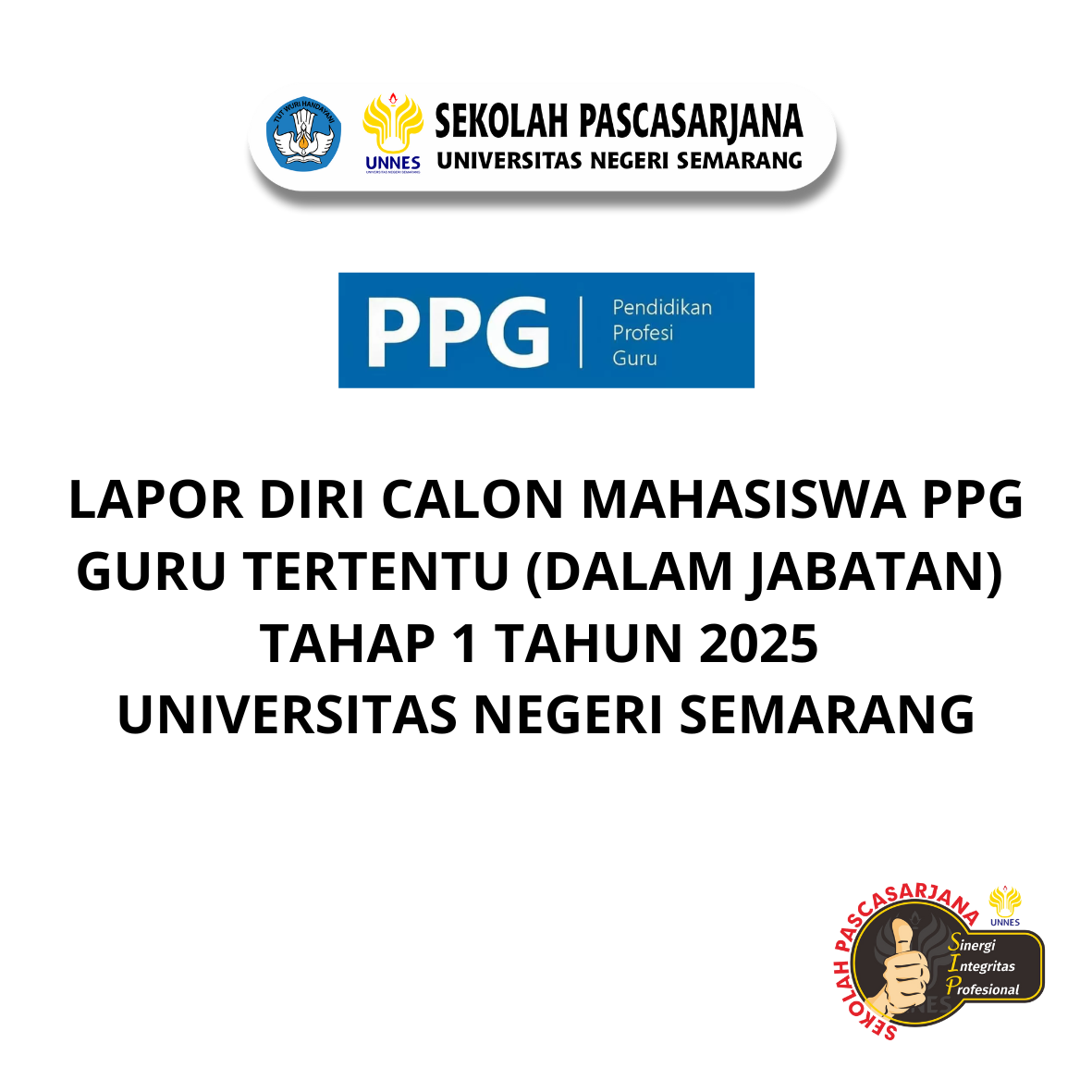Jumat, 12 November 2021 telah dilaksanakan penandatanganan nota kesepakatan UNNES-KPK dan kuliah umum Pendidikan Anti Korupsi di Perguruan Tinggi. Penandatanganan ini dilakukan oleh Rektor Universitas Negeri Semarang Prof. Dr. Fathur Rokhman, M.Hum dan Ketua KPK Republik Indonesia Komjen Pol. Drs. Firli Bahuri, M.Si didampingi Direktur Pascasarjana Universitas Negeri Semarang Prof. Dr. Agus Nuryatin dan plt. Direktur Pembinaan Jaringan Kerja Antar-Komisi dan Instansi (PJKAKI) Bapak Insan Fahmi.
Kegiatan ini dilaksanakan secara hybrid dengan aplikasi zoom dan disiarkan secara langsung di youtube Universitas Negeri Semarang. Hadir sebagai peserta kuliah umum adalah mahasiswa angkatan 2019 dan 2020 Pascasarjana Universitas Negeri Semarang. Kegiatan ini merupakan rangakaian peringatan hari anti korupsi sedunia.
Pada kesempatan ini Rektor Universitas Negeri Semarang Prof. Dr. Fathur Rokhman, M.Hum menyampaikan UNNES telah melaksanakan berbagai program yang berorientasi pada terwujudnya tata kelola perguruan tinggi yang sehat bersih dan bebas dari korupsi. Pada bidang pendidikan diwujudkan dengan pendidikan anti korupsi di berbagai Fakultas. Kemudian di bidang penelitian UNNES memiliki pusat kajian dan pendidikan anti korupsi yang produktif melakukan telaah terhadap upaya pemberatasan korupsi di Indonesia.
“Program anti korupsi diperkuat dengan mengimplementasikannya dalam bentuk regulasi dan tata kelola dalam mewujudkan good and clean government. Dengan berbagai indiaktor, UNNES menjadi Perguruan Tinggi yang termasuk dalam wilayah birokrasi bersih dan dan melayani (WBBM)” Tutur Prof. Fathur.
Kuliah umum yang disampaikan oleh Ketua KPK dipandu oleh Wakil Direktur Bidang Umum dan Keuangan Dr. Eko Handoyo, M.Si, yang juga merupakan Penyuluh Anti Korupsi tingkat madya. Pada kesempatam ini Ketua KPK Republik Indonesia Komjen Pol. Drs. Firli Bahuri, M.Si menyampaikan ada beberapa alasan seseorang melakukan korupsi yaitu berdasarkan gone theory yaitu keserakahan, kesempatan, kebutuhan, dan hukuman pada pelaku korupsi yang rendah. Klaster kedua penyebab korupsi adalah sistem yaitu gagalnya sistem, buruknya sistem dan lemahnya sistem.
“Bentuk korupsi yang banyak terjadi yaitu gratifikasi, penyuapan dan pemerasan. Oleh karena itu pemerintah melakukan 3 strategi pemberantasan korupsi yaitu pendekatan pendidikan masyarakat, pendekatan pencegahan, dan pendekatan penindakan. Salah satu langkah nyata yang dilakukan adalah KPK terus melakukan kerjasama dengan seluruh perguruan tinggi negeri maupun swasta untuk selalu bersinergi dengan civitas akademika perguruan tinggi. Harapan nya semakin kita memberikan pemahaman tentang korupsi semakin orang paham tentang korupsi semakin tidak ingin melakukan korupsi.” Tutur Komjen Pol. Firli Bahuri.
Diakhir pidatonya Komjen Pol. Drs. Firli Bahuri, M.Si mengutip dari Presiden RI pertama yaitu Ir Soekarno “Bahwa perjuangan Presiden Soekarno mudah karena melawan penjajah, tapi perjuangan sekarang akan lebih sulit karena melawan bangsa kita sendiri, yaitu musuh kita sekarang adalah kebodohan, kemiskinan dan gangguan keamanan”.




